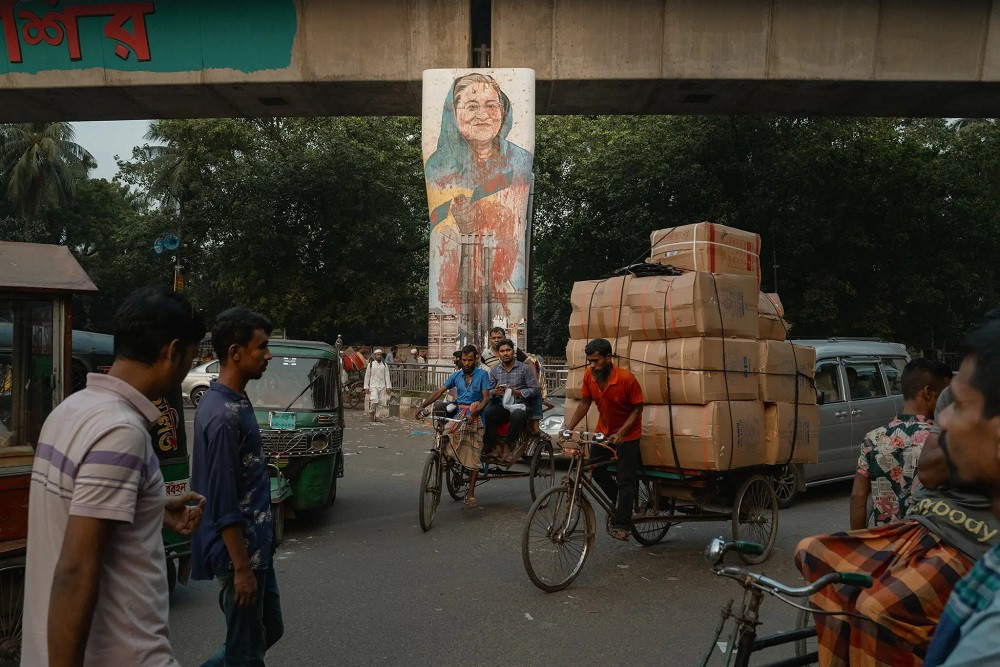How a Country’s Economy Was Siphoned Dry: New York Times
Daily Sun Report, Dhaka
Published: 04 Dec 2024

Photo taken from The New York Times
New Governor of Bangladesh’s central bank, Ahsan Mansur, calculates that about $17 billion was siphoned from the country’s financial system in the 15 years before the government of Sheikh Hasina collapsed in August.
Other economists guess that the true value looted during Hasina’s rule, before she fled the country, could exceed $30 billion. But no one can say for sure, The New York Times reports Wednesday.
Using a web of financial schemes, Mansur said, the perpetrators in the government and at some of the country’s biggest companies pulled off what was effectively the largest bank heist in the history of money. And they did incalculable damage to Bangladesh’s economy.
“The highest level of political authority realized that the banks are the best place to rob,” said Mansur, an appointee of an interim government in Bangladesh.
For an inside job, that meant taking control of the central bank and the ownership of a clutch of private banks and their boards of directors.
The banks then issued billions of dollars in loans to companies, some of them fictional that would never be paid back. Much of that money was then transferred out of the country illegally, said the report.
“Whole boards were hijacked,” said Mansur, an economist who worked at the International Monetary Fund for 27 years.
In that time, he never witnessed “any country where the highest level of the government, engineering with the help of some goons,” managed “the systematic robbing of the banks.”
In October, Mansur was in Washington to lobby the I.M.F. and other international lenders for financial help through the difficult period ahead.
Like many members of the new government, led by the Nobel Prize-winning economist Muhammad Yunus, he is a seasoned technocrat.
Bangladesh, home to 170 million people, is still reeling from the cycle of vengeance, including mob violence that came after a protest movement toppled Hasina, who persecuted her critics and used the power of the state to crush the political opposition.
The economic storm is likely to worsen next year, Mansur reckons, before it clears, the New York City based American newspaper said in its online version.
Hasina escaped to India, her fate and fortune indeterminate. Bangladesh’s interim government said it would seek her extradition.
One of her allies who fled the country, Saifuzzaman Chowdhury, a former lawmaker in her party from the port city of Chittagong, is under investigation by the interim government for money laundering, according to A.K.M. Ehsan, executive director of the Bangladesh Financial Intelligence Unit, the central bank’s investigation arm. Charges have not been filed.
Chowdhury told Al Jazeera that he was the subject of a “witch hunt” against members of the Hasina government.
Attempts to reach Chowdhury, as well as Hasina, were unsuccessful. Their party’s office in Dhaka, the capital, is empty. Multiple calls and messages to its spokesmen, there and abroad, went unanswered.
The student movement that brought down Hasina started as a complaint about the lack of jobs and economic fairness.
Before security forces fired at protesters, killing hundreds, it had gained momentum on the back of widespread misery. For two years, the country had been tipping into a full-blown financial crisis.

